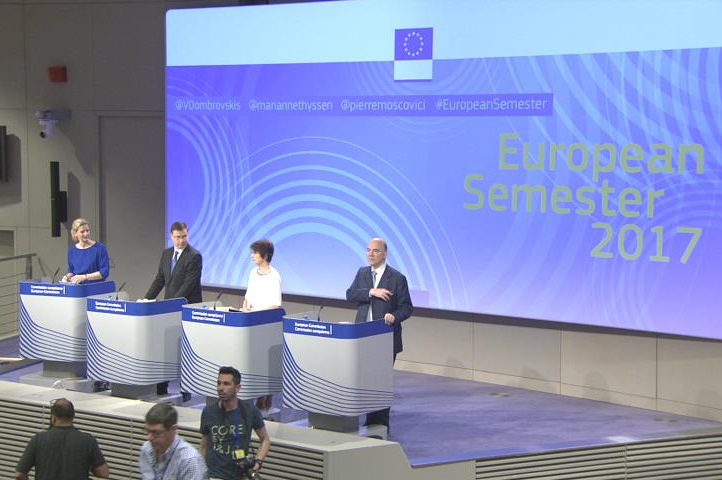2017 Country Specific Recommendations: No inclusive education without sufficient, sustainable and equitable public investment, ETUCE says
Published:
On 22 May 2017, the European Commission published, as part of the 2017 cycle of the European Semester, its Country Specific Recommendations (CSRs). Addressed to the governments of each European Member State, the CSRs are the culmination point of the European Semester, as they express the voice of the European Commission regarding its assessment of Member States’ need for reform in order to ensure stability and growth and to reach the Europe 2020 strategy targets. The CSRs are to be endorsed by the European Council in June, and formally adopted by the Economic and Financial Affairs Council configuration in July.
The proposed CSRs for Austria, Belgium, Bulgaria, France, Hungary, Romania and Slovakia all mention the overarching need to tackle inequalities and disparities in access to quality education for the most disadvantaged, especially with a migrant background, as well as the quality of educational outcomes at various levels. In particular, CSRs for Spain recognise that disparities in educational outcomes are to be addressed by strengthening teachers’ training and individual students’ support. Additionally, ETUCE salutes the Commissions’ Recommendation for accelerated public investment at all levels of government, including education, in Germany. In spite of these encouraging initiatives, ETUCE regrets the significant lack of a generalised call for the 27 remaining Member States to enhance support for public investment in education, which is a crucial requirement for improving the quality of education, and de facto, increasing its inclusiveness. Furthermore, ETUCE warns that the calls to accelerate education reforms in Croatia and Cyprus should meaningfully involve the education social partners to be effective and sustainable. Finally, ETUCE expresses concern over the recommendation for Estonia to strengthen cooperation between academia and businesses. Education trade unions have constantly warned against these worrying trends, as they contribute to the harmful privatisation and commercialisation of higher education, thus reducing its autonomy and affecting the working conditions of its staff.
Commenting on the newly published CSRs, ETUCE European Director Susan Flocken stated: “Very recently, the European Commission has affirmed its commitment to ensuring the ‘Social Triple A’ promised by President Juncker by unveiling its Pillar of Social Rights.” “However, the 2017 Country Specific Recommendations”, she continued, “seem to indicate that the European Commission will continue to prioritise fiscal responsibility targets, affecting budgets for public services, including education, while asking education personnel to continue bearing the biggest responsibility for educational outcomes without proper resources”. Education trade unions stand for creating a virtuous cycle of provision of and access to quality education for all. However, such goals can only be attained through sufficient, sustainable and equitable public investment in education across all European countries, and ETUCE firmly believes that the Country Specific Recommendations should acknowledge and reflect this need.
To read the 2017 Country Specific Recommendations, click here